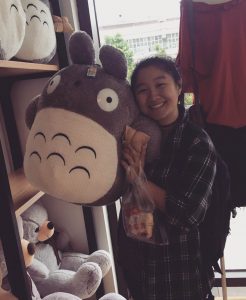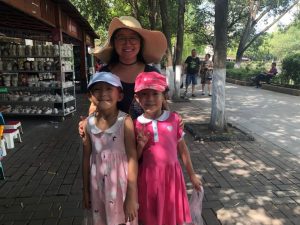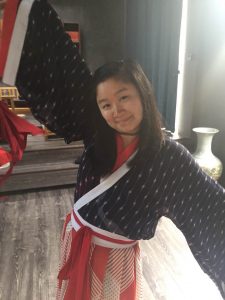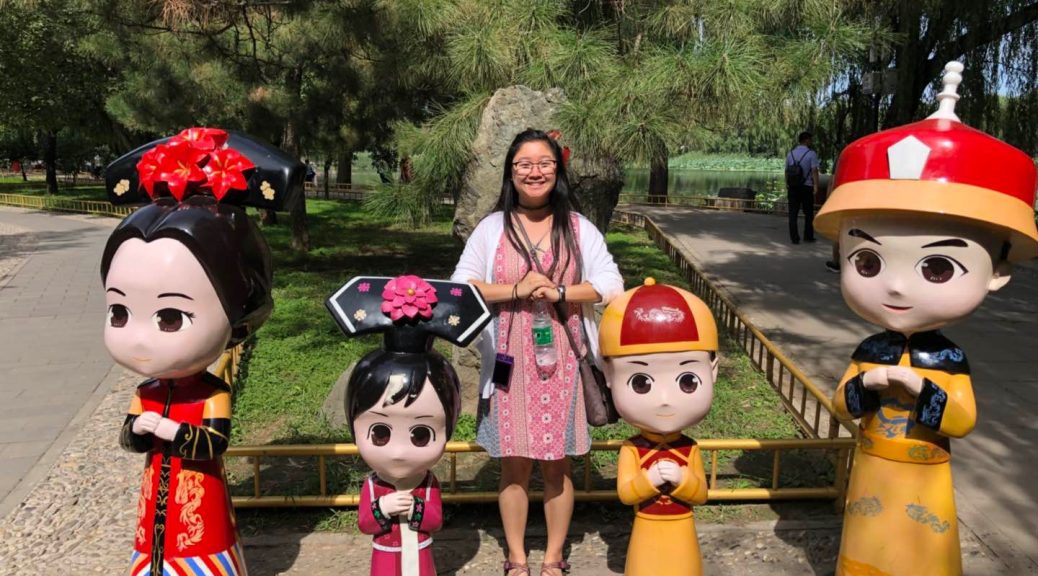Dec. 9, 2018
I am 22 and am adopted from China – well, my mother has to remind me that I was adopted because “adopt” is a verb, not a constant state of being.
I chose to go to China for my EMU cross-cultural long before college, even though I had already visited there in 2012 with my family. My brother was studying in China, so my parents felt it was the best opportunity to visit the three girls’ orphanages where my sisters and I came from.
During my visit to China with my family, the experiences I had changed what I knew of myself before. I was constantly told that I had such good English. Or people spoke to me in Chinese, expecting me to understand. Once, I even had a woman say to me, in Chinese (which my brother could understand), how it was so amazing that someone so young (I was sixteen at the time) was taking foreigners around China.
From these multiple encounters, I felt like I was a “fake” Chinese person, particularly since I didn’t know the language. I explored the term “Chinese-American,” but what I found did not sound like my story. I felt more American-Chinese. Chinese-American families usually involved several generations, where the kids’ grandparents and parents teach them Chinese culture and language. Their other family members looked like them, and they knew exactly where they came from. I didn’t feel Chinese, even though I looked “Chinese.”
 I hoped that going to China for a semester would help me find the missing cultural piece of myself. I took the Mandarin course last year in preparation for the cross-cultural. Little did I know what was coming…
I hoped that going to China for a semester would help me find the missing cultural piece of myself. I took the Mandarin course last year in preparation for the cross-cultural. Little did I know what was coming…
Once again, I found myself immersed in a place where I could only say, “thank you” and “my name is….” Our EMU group took Chinese language classes, studied Chinese history and learned on the go. So much new learning about China hit me hard, and it made me feel very defeated.
Most people in China do not understand the concept of adoption. It was difficult to explain it to my host mom and for her to explain it to others, such as taxi drivers, dance moms/dads, store clerks, restaurant workers, family members and grandparents.

I was put into a host family, whose first response to me was “Oh, I think our girls (6 year-old twins) will be a bit disappointed when they meet you next weekend,” since I didn’t look like a foreigner. And in fact my host sisters kept forgetting that I was a foreigner/American so they would speak to me in Chinese. Even 6-year-old Chinese was far more advanced than anything I had learned in my one semester of Chinese at EMU. So, that did not help me come to peace with my lack of “Chinese-ness”. College students would also tell me that I “look” Chinese. I had to confront this all semester.
There were times when I did not want to go to my host family’s [home] or felt embarrassed and scared about even going to the grocery store because of the looks I would get when I came up to a clerk with my Google translator or my broken Chinese vocabulary. When I was with EMU classmates, salespeople or restaurant workers assumed that I could translate or order for the foreigners, but I didn’t have enough vocabulary to explain my situation in terms they would understand. In the end, as one way to cope with the constant bombardment of feeling inadequate as a “Chinese”, I would use only English so as not to confuse native speakers into thinking I knew any Chinese at all.
But from this semester I have learned quite a bit about myself. These lessons are not from just my experiences, but from observing people in my cross-cultural group. The support I have received through this semester has been such a light at  the end of my own tunnel of singular thoughts about my own identity. Even though I did not learn as much Chinese or become as fully “Chinese” as I initially thought I would, I have started to change my mindset and idea of what it means for me to be Chinese. Through the great support of my family at home and my cross-cultural friends and leaders, I am beginning to take a different approach to how I see myself as Chinese. For me, it will be a nonlinear path of growth. This cross-cultural is only a small part in my journey of self-acceptance.
the end of my own tunnel of singular thoughts about my own identity. Even though I did not learn as much Chinese or become as fully “Chinese” as I initially thought I would, I have started to change my mindset and idea of what it means for me to be Chinese. Through the great support of my family at home and my cross-cultural friends and leaders, I am beginning to take a different approach to how I see myself as Chinese. For me, it will be a nonlinear path of growth. This cross-cultural is only a small part in my journey of self-acceptance.
-Claire Waidelich

